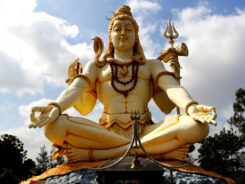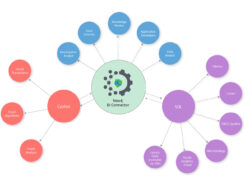The most common thing that most of us expect is that the religion should not come in the way of education. But, does it happen? No, religion gets into the picture right from the school education. From the time you enroll your kid in a school for pre-kindergarten or lower kindergarten, religion gets into the practice. In fact, you will have to fill-up the school application with the name of your religion.
How about college education?
The journey does not stop with the school education. In fact, in the case of college education, bias is widely present. Mainly, when you take the example of institutions running under religious trusts, the first thing they ask is religion. Students from different cultures apply to this type of college. But, even though other students have excellent academic records, importance is given only to the candidates from a specific religion.
Not just religion:
In addition to faith, quota system that is in vogue is yet another thing of concern. With the availability of quota system, many deserving candidates are not able to get into their dream course. For instance, candidates from a specific category get many concessions. With just a pass in the higher secondary, they can get admission to their dream course.
On the other hand, with more than 90% of marks in every paper in higher secondary, some candidates are not in a position to get a seat. This type of bias exists not just concerning religion, but these are due to caste differences.
The caste system is present in India:
The admission differences with a better edge for candidates from backward class are present across India as per government norms. However, some colleges are biased to specific religion alone. They follow the government norms of caste, but they have their own bias for religion-based admissions.
Religious bias in textbooks in schools:
In the year 1982, the National Council of Education Research and Training NCERT issued guidelines to rewrite textbooks for schools. According to this instruction, NCERT insisted that characterization of the medieval period as the period of a clash between Hindus and Muslims should be forbidden.
In the same manner, in the year 1989, The West Bengal Board of Secondary Education instructed the publishers and schools to remove the content that attracted criticism against Islamic Invaders. The WBSE told that the publishers should delete the history of Islamic invaders destructing Hindu temples from the History textbooks. However, some educationists felt that this move is politically motivated.
Notably, the chapter of Aurangzeb and his mental agony to Hindus and their temples were removed. Many such historical facts were either deleted or hidden due to favoritism to specific religion or hatred towards the other.
Does this trend follow?
Even this trend follows now in the admission of students to some colleges. Some institutions are favorable to students from a specific religion while being biased to students from other religion. This type of difference denies deserving students of their right to education. Of course, there are many institutions across India. If a student does not get admission to one college, he can apply to another for admission.
Conclusion:
Favouritism or hatred in the educational arena is something not good for the future generation. There should be equal opportunities for all. Exactly, deserving candidates should get their right to education. In fact, they can bring in better results to their college as compared to the candidates from a specific religion. So, institutions should follow ethical standards in the admission of students. They should give importance to merit as against castes and religions. An equal educational opportunity for all is essential.










































































![1478238719977-rejection%20letter[1]](https://dailyscrawl.com/wp-content/uploads/2017/12/1478238719977-rejection20letter1-640x320.png)






